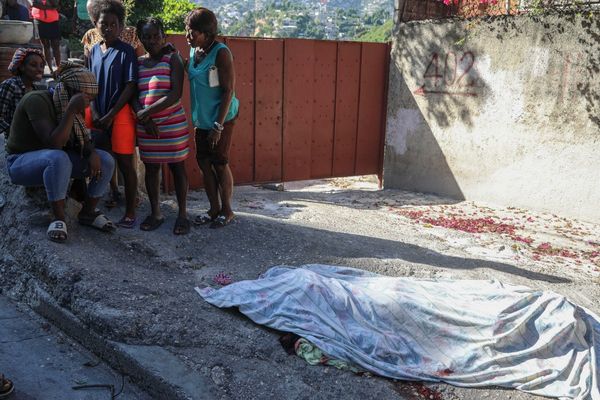
It is impossible to distil coverage of an ongoing major world event into a tidy list, but Crikey has collected a few longer reads and outlets you might want to begin with when it comes to Russia’s invasion of Ukraine. This helpful collection of resources from the Nieman Lab also provides quality information on who to follow, particularly on Twitter, for timely coverage. At least seven journalists have been killed in Ukraine since February.
English-language news media start-up The Kyiv Independent launched a few months before Russia invaded Ukraine. Since then the outlet’s coverage has become a must-read, as you can see from its spike in Twitter followers from 30,000 to 2.1 million as the war progressed.
Today, a teenager describes his three months in Russian captivity.
Locked in a tiny dilapidated prison cell in Vasylivka’s pre-trial detention center, the boy heard the harrowing screams of Ukrainian prisoners of war being tortured by Russian soldiers. He watched as some of them died after enduring hours of torture and was forced to clean the ‘torture room’ awash with their blood.
‘Every minute there was a very severe challenge because every minute could have been my last,’ the boy told the Kyiv Independent during an interview alongside his father.
World and national security reporter Christopher Miller has spent more than a decade in Ukraine and Eastern Europe and began reporting on the war in Ukraine for BuzzFeed News, but now writes for Politico. His coverage offers up-to-date analysis. This week he reported on a crucial new phase of the war.
Blasts that rocked a Russian military airfield in forcibly annexed Crimea signal the start of Ukraine’s counteroffensive in the south and a critical new phase of the war that could shape its ultimate outcome, two Ukrainian officials told POLITICO.
The series of explosions Tuesday sent huge fireballs and mushroom clouds of black smoke into the sky, scattering terrified Russian vacationers who were seen in videos shared on social media scrambling for safety on a beach and fleeing by car over the Crimea bridge to Russia.
Moscow downplayed the blasts, saying they were caused by ammunition that had accidentally detonated at the airfield, where satellite images showed several military planes had been parked.
Ukrainian-born reporter Simon Shuster has broken multiple huge stories about the war and provided sprawling intimate features on the crisis for TIME. Last month he profiled Olena Zelenska, wife of the Ukrainian president.
By the time the president rushed out the door, the children were awake, and seemed to understand what was happening. Kyrylo, age nine, obeyed his mother with a quiet intensity, stuffing a few of his things into a little rucksack: some markers, a puzzle book, pieces of a partially assembled Lego set. His sister, Oleksandra, 17, was in touch with her friends through social media, trying to get a better sense of what was happening outside.
About a hundred miles to the north, the Russian forces had exploded across the border around dawn, aiming to encircle the capital and overthrow Zelenskyy’s government. From the air, Russian paratroopers were descending on Kyiv and trying to seize the airports. Ukrainian troops and volunteers were putting up a tenacious fight. At one point that morning, as the First Lady stood at the windows of the presidential residence, a fighter jet tore through the sky, flying low enough for her to feel the sound inside her rib cage. The security guards told the family that they needed to go down to the basement. There was a risk the Russians would bomb them from the air.
And finally, you can catch up on coverage by Crikey’s own Amber Schultz who travelled to the Ukraine border and reported on the unfolding refugee crisis.
A group of mostly solo travellers are meeting for the first time, sleeping in a row on mats above the dining hall. They come from all over the world but are mostly former US soldiers on the day I visit. Most have purchased their own tactical gear — bulletproof vests, heavy boots and helmets — which they show off and compare among one another.
But they’re all very unprepared for what awaits them. They know they have to cross the border and find a white tent. They’ve heard rumours their passports will be taken from them once they arrive — one man has brought an expired one he hopes to hand in instead. None have any insurance and are hesitant to speak because they’re not sure if their governments allow ex-military to join foreign armies.







